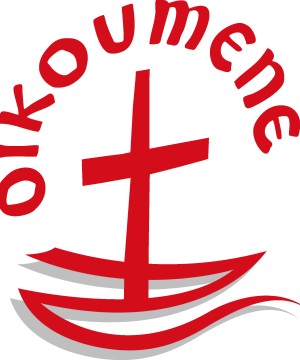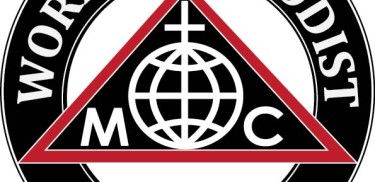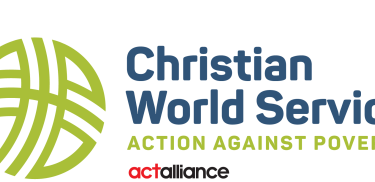"Unity is a gift of God that permits within it both liberty and diversity, while the mission of the Church in the world provides motivation for the recovered unity.”
Background
-
Background
Methodism has always seen itself as part of a greater whole. In our history, concern for unity has seldom been absent. Through ecumenical encounter we have come to cherish our roots and our distinctive way of being church. Participation in ecumenical bodies and dialogue with sister communions has immensely enriched the life of our Church. We have not yet received all that is offered. Nor have we exhausted what we have to give from our tradition.
Methodism has always seen itself as part of a greater whole. In our history, concern for unity has seldom been absent. Through ecumenical encounter we have come to cherish our roots and our distinctive way of being church. Participation in ecumenical bodies and dialogue with sister communions has immensely enriched the life of our Church. We have not yet received all that is offered. Nor have we exhausted what we have to give from our tradition.
We believe that the unity of the church is not incidental to God's purpose. The unity of the church demonstrates God's ability to reconcile through Christ and supports the mission of God. The unity of the church serves the unity of creation. We understand visible unity to involve mutual acceptance of faith, sacramental life and ministry, a common witness to the gospel, solidarity with the oppressed and the defence of creation.Aware of our fragmentation, lack of understanding of each other and the prayer of Christ that we be one:
- We recognize our need of God's grace, of prayer and healing
- We confess our failure to love our sisters and brothers in Christ
- We repent our lack of appreciation of other cultures
- We acknowledge our limited experience and vision.
In our ecumenical journey there can be no turning back. As Te Hāhi Weteriana O Aotearoa, we maintain our commitment to ecumenism.
-
MCNZ Ecumenical Statement
Conference 2002 asked the Mission and Ecumenical Committee (MM&E) to make a policy statement on the church’s position on ecumenism. This resulted in a wide-ranging statement that captured the significance of the ecumenical movement over time to the Methodist Church of New Zealand, Te Hāhi Weteriana o Aotearoa. This statement is about ecumenism in its widest sense, and not church union or bilateral dialogues, although reference is made to these as aspects of ecumenism expression. Conference 2003 affirmed the paper “To be Methodist is to be Ecumenical” and commended it to the church.
Ecumenical Organisations - Aotearoa -New Zealand
-
Aotearoa-New Zealand
The story of Methodist involvement with ecumenism in Aotearoa New Zealand is almost as old as Christianity has been given expression in the land. MCNZ has a long history of ecumenical engagement within Aotearoa-New Zealand.
Key ecumenical bodies have included the former National Council of Churches (formed in 1941), and its successor the Christian Conference of Aotearoa New Zealand (1988-2005); and latterly the National Dialogue for Christian Unity. Besides these national ecumenical bodies, MCNZ maintains involvement with various ecumenical organisations, such as: Christian World Service, the Bible Society, the Christian Education Commission, the Interchurch Council for Hospital Chaplaincy, the Interchurch Tertiary Chaplaincy Council, the New Zealand Council of Christian Social Services, the NZ Lay Preachers Association, Prison Chaplaincy, the Interchurch Bioethics Council, and other ecumenical agencies.
-
National Dialogue for Christian Unity
In 2008 the Methodist Church launched an ecumenical initiative known as the National Dialogue for Christian Unity (NDCU), intended to develop a theology of unity and terms of reference for a ‘Churches Forum for Christian Unity’.
The NDCU was publicly initiated in a service of celebration in Wellington on 25 February 2016, and initially comprised Anglicans, Roman Catholics and Methodists. Subsequently the Presbyterians joined in 2018, and the Religious Society of Friends (Quakers) in 2021. A number of ecumenical organisations are associated as ‘observer’, as is the Salvation Army.
The purpose of the NDCU is to develop existing relationships, giving expression to koinonia, and sharing and receiving the gifts which each Member Church has to offer.
Download Resources:
-
Te Runanga Whakawhanaunga I Nga Hahi – The Maori Council of Churches in Aotearoa New Zealand
A Maori section existed from 1947 within the former National Council of Churches in New Zealand (later the Conference of Churches in Aotearoa New Zealand). In 1982, the member churches of this Maori section formed their own, autonomous council of churches. The aim of the Te Runanga Whakawhanaunga I nga Hahi o Aotearoa is: "In our own life, witness, and service, to try and make more visible our unity in Christ, and promote the concerns and programmes of the ecumenical movement among our own constitutional members." MCNZ’s involvement is through Te Taha Maori who form an integral part of Te Runanga.
-
Uniting Congregations of Aotearoa New Zealand
A number of Methodist parishes are in local expressions of ecumenical partnerships or union parishes that variously include combinations of Presbyterian, Anglican, and Christian Churches. UCANZ is a body that is a community of Partner Churches and Co-operative Ventures, giving administration support while discovering and living out what it means to be a missional church of Jesus Christ in today’s world.
Link:
Ecumenical Prayer
You can find our prayer resources by clicking here.
Regional and International:
MCNZ has active membership, involvement and fellowship with regional and world-wide Methodist and ecumenical organisations. MME role includes supporting the connections and engagement of these relationships.

World Council of Churches
Inspiring the worldwide fellowship of churches to work together for unity, justice and peace, the World Council of Churches was founded in 1948. It is a community of churches on the way to visible unity in one faith and one eucharistic fellowship, expressed in worship and in common life in Christ. It seeks to advance towards this unity, as Jesus prayed for his followers, "so that the world may believe" (John 17:21). As a fellowship promoting unity, its membership includes some 350+ churches from more than 120 countries, representing over 580 million Christians worldwide. MCNZ is a longstanding member of WCC.
WCC Website
Christian Conference of Asia
The Christian Conference of Asia began as the East Asia Christian Conference, which was inaugurated at an assembly in Kuala Lumpur, Malaysia, in 1959. At the 1973 assembly, meeting in Singapore, it was agreed to change the name to Christian Conference of Asia (CCA). CCA exists as an organ and a forum of continuing cooperation among the churches and national Christian bodies in Asia, within the framework of the wider ecumenical movement, believing that the purpose of God for the church in Asia is life together in a witness to the mission of God in the world.
Under the regional groupings for ecumenical purposes, principally the World Council of Churches, New Zealand and Australia form part of Asia, and therefore MCNZ is a member of CCA.

Pacific Council of Churches
FORMED in 1961 by key Pacific church figures, the Pacific Conference of Churches (PCC) was a regional response to a changing world and independence. PCC has about 30 member churches and eight councils of churches in 18 countries and territories across the region. Its members come from a wide section of Christian faith confessions. In recognition of the strong links of Aotearoa-New Zealand within the Pacific, and the pacific diaspora population in Aotearoa New Zealand, MCNZ has in recent years re-joined PCC.
PCC Website
World Methodist Council
Founded in 1881, the World Methodist Council is the modern-day face of the extended Wesleyan/Methodist family around the world. It encompasses approximately 80 member churches on six continents (including MCNZ), all being branches of a single family tree planted by John and Charles Wesley.
WMC Website
Christian World Service
Christian World Service is the justice, aid and development agency of the Anglican Church of Aotearoa New Zealand and Polynesia, Methodist Church of New Zealand, Presbyterian Church of Aotearoa New Zealand, Religious Society of Friends (Quakers) and Christian Churches of New Zealand. It has its origins in the first Christmas Appeal to support relief efforts in Greece post-World War II. The Appeal was launched by the National Council of Churches in December 1945 and remains central to CWS's fundraising work. CWS supports humanitarian efforts after natural disasters and conflict, development programmes that tackle the root causes and symptoms of poverty and injustice, education work to increase global understanding and advocacy campaigns to address the issues of concern and the drivers of global poverty. It works through a network of local partners who are immersed in their own communities and ACT Alliance (Action by Churches Together), a global network of faith-based organisations working on long-term development, advocacy and humanitarian assistance in more than 120 countries.
CWS websiteMethodist Consultative Council of the Pacific
MCNZ is a member of the Methodist Consultative Council of the Pacific (MCCP), which gathers church leaders of Methodist and Uniting churches with Methodist heritage from across the Pacific – this includes Australia and New Zealand.
Ecumenical dialogues and agreements
National ecumenical dialogues involving the MCNZ are given oversight by the Faith and Order Committee who report to Conference on the dialogues, and supported by MME.
-
Methodist-Anglican
Responding to the interim report of the Anglican Methodist International Commission Sharing in the Apostolic Communion, a first gathering of a formal Anglican-Methodist Dialogue was held in 1996.
Following the conversations held in the United Kingdom and the move towards a Covenant (2001), in 2002 respective resolutions were taken to the Anglican General Synod/Te Hinota Whanui and Methodist Conference to move towards a New Zealand covenant. The work towards the Covenant was essentially the second phase of the bilateral dialogue. An Anglican-Methodist Covenant for Aotearoa New Zealand was affirmed by the respective denominations in 2008, and formally signed on Wesley Day in 2009.
The current phase of dialogue continues the exploration and expression of this Covenant, in particular the question of interchangeability of ministries.
Download Resource:
-
Methodist-Roman Catholic
Since 1980 Roman Catholics and Methodists in Aotearoa New Zealand have been engaged in a formal dialogue. The practice has been of conversations of listening and sharing for the purpose of growing understanding of respective polity and traditions, and of corporate and personal spiritual expressions. In 2015, to recognise the gifts each tradition can offer to another, a resource was developed for the exchange and gifting of hymns.Since 1980 Roman Catholics and Methodists in Aotearoa New Zealand have been engaged in a formal dialogue. The practice has been of conversations of listening and sharing for the purpose of growing understanding of respective polity and traditions, and of corporate and personal spiritual expressions. In 2015, to recognise the gifts each tradition can offer to another, a resource was developed for the exchange and gifting of hymns.
Download Resource:
Methodist-Roman Catholic hymn liturgy
-
Trilateral Dialogue on the Diaconate (Anglican-Methodist-Roman Catholic)
A trilateral dialogue on the Diaconate, specifically as a permanent or vocational ordained ministry of service, as represented in the Anglican, Methodist and Roman Catholic traditions in New Zealand, was organised in 2019. The dialogue explored traditions and current expressions of Deacons in the respective denominations, and raised questions regarding the ordained Deacon’s role, presence and recognition in church polity and service.A trilateral dialogue on the Diaconate, specifically as a permanent or vocational ordained ministry of service, as represented in the Anglican, Methodist and Roman Catholic traditions in New Zealand, was organised in 2019. The dialogue explored traditions and current expressions of Deacons in the respective denominations, and raised questions regarding the ordained Deacon’s role, presence and recognition in church polity and service.
Download Resource:
-
Korean Methodist Church
MCNZ and the Korean Methodist Church working in New Zealand have been sharing in intentional dialogue since 1992. A key milestone was the signing of an Agreement in 2012. Through this dialogue, we identified three principles: we are Methodist Christians learning to be Disciples together; that working together will not just happen, it will require the investment of careful prayerful work and mutual cultural learning; and there are a different models of how partnership might develop between the KMC South Pacific Synod and MCNZ.MCNZ and the Korean Methodist Church working in New Zealand have been sharing in intentional dialogue since 1992. A key milestone was the signing of an Agreement in 2012. Through this dialogue, we identified three principles: we are Methodist Christians learning to be Disciples together; that working together will not just happen, it will require the investment of careful prayerful work and mutual cultural learning; and there are a different models of how partnership might develop between the KMC South Pacific Synod and MCNZ.
Download Resource:
-
International dialogue agreements
The World Methodist Council has various ecumenical engagements with world communions and ecumenical bodies. International ecumenical dialogue resources are available on the WMC website.The World Methodist Council has various ecumenical engagements with world communions and ecumenical bodies. International ecumenical dialogue resources are available on the WMC website.

